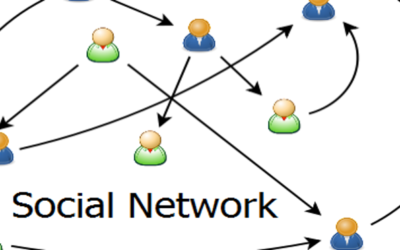Individual challenged by dementia have strong emotional memories.
They remember how you make them feel, even if they don’t remember your exact words. You can use the power of their emotional memory to build relationships with them.
Use Emotional Memory
Emotional memory is a strong force.
It remains when other memories fade. An individual challenged by dementia has the capacity to form and enjoy relationships. They are still capable of giving and receiving love, of engaging in meaningful activities, and of interacting with others. But one of their difficulties is their ability to self-motivate. They may not have the ability to initiate an interaction and because of that may become isolated.
Apathy is a common attribute of dementia. Knowing and expecting this helps caregivers create an environment where the individual can thrive and flourish.
Every individual is unique
Every individual is unique in their interests, personality, and situation.
Take this into account when creating that environment for thriving.
In early 2011 I was attempting an exercise that included speaking about the upcoming wedding of Prince William and Kate Middleton. The woman I was working with was proudly French Canadian. she was not interested in the Royal family. And she needed to tell me that – quite strongly. She was asserting her interest, or in this case non-interest, in the subject matter.
It was important for her to state her feelings and it was important for me to listen and accept them. We changed activities and she was content.
While this was a small incident, my honoring her opinion improved our relationship. We became closer friends. She felt understood and appreciated for her unique perspective.
The need for human connection
Individuals have an basic need to connect with other human beings. And this need doesn’t change with a dementia diagnosis.
Individuals with dementia still have a need and desire for more human interaction. It is important to keep this in mind and think about ways to create connections.
As well as creating connections, create rituals that help to support these connections.
For example, you might go to the same coffee shop for a coffee every Tuesday with your mom or dad. They will get used to the coffee shop environment . Likely they will see the same people every week. This will give them a feeling of stability.
Create predictability
One family took their mom to Mass on Sundays and then to their home for a family dinner.
One Sunday, she was falling asleep during Mass so they decided to just take her straight back to the nursing home. They assumed she was too tired to come for dinner. She was drowsy until they reached the door of the nursing home. At that point she perked right up and demanded to know why she was back so soon. The family dinner was an important and valued ritual to her. She didn’t want to miss it.
Help in building relationships
When dementia enters the picture, you may need to provide more support to maintain relationships. Your mom or dad may no longer have the capacity to organize coffee dates, visits, or trips. That doesn’t mean they won’t still enjoy them. It is important to not let the disease come before the relationship.
Individuals with dementia may require more cuing to support relationships.
One way to provide cuing is with photographs.
Tag photographs
Provide photograph albums with every individual tagged by name. Make a simple family tree, with pictures and names as a useful cuing tool. this helps individuals who interact with your mom or dad use the photos to spark discussions.
Then and now pictures can also provide a helpful cuing function. Having a picture of their children as youngsters or young adults and then a current picture is also helpful for avoiding confusion. Make sure every picture is tagged with the individuals’ name so that name recall is not an exercise in frustration.
Emotional range
An individual challenged by dementia retains the capacity to feel a range of emotions. In fact, you may find that the individual communicates more about emotions and feelings than facts and events.
One individual that I work with often talks about how lost he feels. His world has shifted so quickly that he has trouble figuring it out. But he talks about it in order to make sense of it. Talking about his feelings is a good way to reduce the stress he feels from his dementia.
It is a normal reaction for an individual with dementia to speak in this way, since their emotional landscape is very much alive.
When you are talking about emotions make sure you let them know you are aware of their feelings. Being validated through listening and understanding is important to build self-confidence and improve self esteem. And self-confidence will have been shaken by the dementia.
Body language and emotional cues.
Since the individual is much more sensitive to emotions, they will pick up on your body language and emotional cues very quickly. Often, they will react to the smile (or lack of one) on your face rather than to the words you are using. Let them know how you are feeling. They may find it easier to communicate about feelings rather than facts.
Keep this in mind, as well, when dealing with difficult situations. Don’t let anxiety or frustration overwhelm you. Your emotions will transfer to them and their anxiety levels will increase. This can make solving challenging situations even more difficult.
Even though an individual with dementia may be more emotionally aware, they may have difficulty in expressing themselves. Verbal expression can remain challenging. Loss of verbal fluency is common in different types of dementia. This means the individual does not have the same capacity to find appropriate words or phrases. They may become frustrated when trying to express themselves.
Encouraging your mom or dad to slow down when expressing their thoughts can help. As well, give them time to process information when you are asking questions. Making them feel unhurried can help with verbal expression.
Non-verbal expression.
Non-verbal expression by individuals with dementia is an important element of communication. Finding activities that support this type of expression can enrich the relationship between caregiver and care-receiver. Some non-verbal activities that you might try are:
- Watering or trimming plants
- Brushing or feeding pets
- Listening or singing to music
- Repetitive physical activity such as shredding paper, digging the garden, or walking
- Holding hands or brushing hair
- Sorting cans, socks, or other simple household chores
- Feeding or watching birds
Non-verbal activities are important for building warmth in a relationship. They also add richness and variety to your interactions.
Verbal expression.
When challenged by your mom or dad’s dementia, don’t neglect meaningful activities that exercise their brain. You can check out the Fit Minds Programs for activities that can engage your mom or dad.
Individuals living with dementia may have trouble expressing themselves in way that are easy to understand. Their ability to cope with stress and changes in their environment will be compromised. Creating an environment that supports both their intellectual and emotional needs is important. Continuing to give them opportunities to interact and express themselves helps maintain their quality of life.







0 Comments